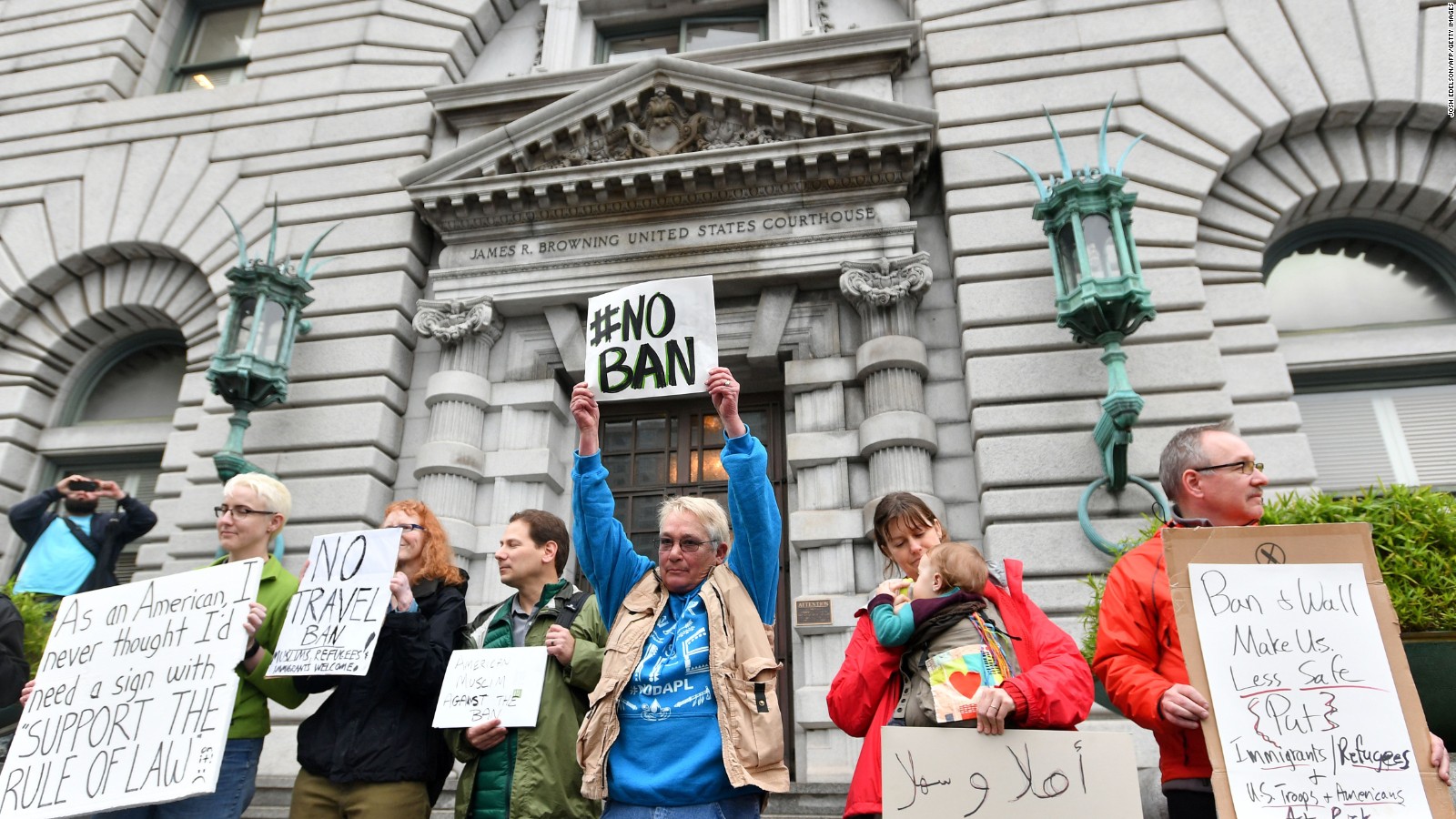On the campaign trail, President Donald Trump promised to take a blowtorch and pliers to the Washington political establishment.
But
three weeks into his presidency, he has been repeatedly disarmed and
frustrated by partisan opponents and the machinery of a government
designed to check his power.
It hasn't been for a lack of trying. Trump over his first 21 days in office has issued a barrage of executive actions aimed at delivering on a range of policy pledges -- including many of his most aggressive and controversial. But the January 27 travel ban
has become a millstone on the neck of a young administration that has
spent the last two weeks digging deeper into a legal battle that now
seems destined for the Supreme Court.
Much
of the emerging image of dysfunction has been painted by Trump's own
staff. The calls are coming from inside the White House -- and they are going to reporters,
who have been flooded with accounts of a frenetic and angry president,
who bounces from political frustration to personal grudge -- often in his bathrobe, according to a New York Times account disputed by the White House -- in the space of a few minutes.
Now, with the foot soldiers of his Republican majority under siege in their home districts,
the blustering outsider who chalked up his predecessors' failures to
their lack of will or guile, is seeing his own challenged daily.
A growing barrier to 'The Wall'
"I
would build a great wall, and nobody builds walls better than me,
believe me, and I'll build them very inexpensively," Trump said during
his June 2015 campaign kick-off. "I will build a great great wall on our
southern border and I'll have Mexico pay for that wall."
Trump's
promise to build a wall on the southern border was a consistent
crowd-pleaser during the campaign. Congressional Republicans have vowed
to finance its construction, but have been short on the how and when
details.
His guarantee that the Mexican government would foot the bill, which could, according a Reuters report
out Thursday, cost more than $20 billion, had been one of the pitch's
key selling point. But their president, under pressure at home, has
balked and dismissed it out of hand. When the White House floated a 20%
tariff on Mexican imports to cover the upfront costs, there was a rare bipartisan meltdown and the trial balloon was quickly deflated.
Repeal and replace Obamacare with ... what?
"Something terrific," Trump said during a July 2015 ;who asked what he would push in place of Obamacare.
Pressed
to provide a bit more detail, Trump advocated for allowing people to
buy insurance across state lines. But that carries concerns for critics
from both sides of the aisle.
It's
been more than 18 months since that conversation -- and nearly seven
years since President Barack Obama signed and Affordable Care Act into
law -- but Trump and Republicans do not yet have a viable replacement to
shop. In a Sunday interview with Fox News, the President called the
process "very complicated" and suggested it could last into 2018 -- a midterm election year.
And
with demonstrators flooding town hall meetings to rail against
Republicans' health care plan, or a convincing lack thereof, full repeal
seems a long ways off.
Some doubts on the homefront
A
little more than a week before his inauguration, Trump declared at a
wild press conference in New York that "Russia, China, Japan, Mexico,
all countries will respect us far more, far more than they do under past
administrations."
Trump
during his campaign, and after being elected, asserted over and again
the US, mostly because of Obama, had been diminished in the eyes of the
world. He pledged to reverse that and restore those purported losses.
While
it's unclear exactly how outsiders' views of the US have shifted over
the past three weeks, Gallup found that only 29% Americans believe
"other countries around the world have respect for the president."
Two-thirds of respondents said they did not.

No comments:
Post a Comment